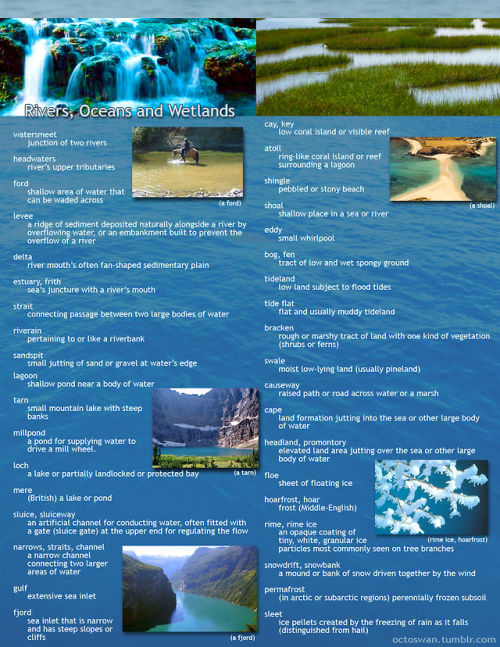Tender, Subtle Ways To Show A Character Cares
Tender, Subtle Ways to Show a Character Cares
For the characters who will literally die before saying it out loud, but their body and habits scream devotion.
Letting them walk on the inside of the sidewalk
Memorizing their coffee order
Keeping extra gloves/scarves/snacks just in case they forget theirs
Texting: “Are you home safe?” instead of “I miss you”
Tucking their hair tag in
Offering the last bite, even if they really wanted it
Taking mental notes on what makes them nervous or happy
Saying “Call me if you need anything” and meaning it
Sitting close enough that their shoulders brush
Keeping an umbrella in their bag. Just. In. Case.
Being the first to notice when something’s off
Defending them behind their back
Refusing to let them feel dumb, even for a second
Remembering little details from a single offhand comment
Turning down the music when they walk in without asking
More Posts from Sparklingsilvermagnolias and Others
It is incredibly important to train yourself to have your first instinct be to look something up.
Don't know how to do something? Look it up.
See a piece of news mentioned on social media? Look it up.
Not sure if something is making it to the broader public consciousness, either because you don't see it much or you see people saying nobody is talking about it? Look it up.
Don't know what a word means? Look it up.
It will make you a better reader and a better writer, but it will also just make you more equipped to cope with the world.
So often, I see people talking about something as though it is the first time anyone has ever acknowledged it, when I've been reading reports about it on the news for months or years. Or I see someone totally misinterpreting an argument because they clearly don't know what a word means--or, on the other hand, making an argument that doesn't make sense because they aren't using words the right way.
Look things up! Check the news (the real news, not random people on social media)! Do your research! You (and the world) will be better for it.
Character Flaws and Their Meanings
Impulsiveness : Acts on instinct without careful planning. Perfectionism : Sets unrealistically high standards, leading to self-criticism. Indecisiveness : Struggles to commit to decisions or choose a path. Arrogance : Overestimates one’s abilities and dismisses others. Pessimism : Habitually expects negative outcomes in most situations. Cynicism : Distrusts the motives and sincerity of others. Overconfidence : Places excessive faith in one’s skills, often underestimating risks. Stubbornness : Resists change and refuses to adapt to new ideas. Jealousy : Feels envious of others' success or possessions. Insecurity : Experiences frequent self-doubt and a lack of confidence. Procrastination : Tends to delay tasks, often leading to missed opportunities. Passivity : Avoids taking initiative and relies on others to act. Aggressiveness : Responds with hostility or force rather than reason. Selfishness : Prioritizes personal gain over the welfare of others. Fragility : Is overly sensitive to criticism and easily discouraged. Egotism : Constantly focuses on oneself and one’s own importance. Defensiveness : Quickly rejects or rationalizes away critique or new information. Manipulativeness : Exploits others to fulfill personal needs or desires. Recklessness : Shows a careless disregard for potential risks or consequences. Resentfulness : Holds lingering bitterness and grudges over perceived wrongs. Distractibility : Finds it hard to maintain focus amid competing interests. Impatience : Lacks the willingness to wait, often spoiling opportunities to learn. Perfunctory : Performs actions in a mechanical, uninspired manner. Self-Doubt : Consistently questions personal abilities and decisions. Arbitraryness : Makes decisions based on whim rather than reason or evidence. Rigidity : Is inflexible and unwilling to consider alternative viewpoints. Gullibility : Trusts too easily, often leading to being misled or deceived. Obsession : Becomes excessively fixated on particular ideas or details. Aloofness : Maintains emotional distance, appearing detached or indifferent. Intolerance : Refuses to accept differing perspectives or lifestyles.
Writing Advice for Brainstorming
Mix genres and time periods: Experiment by combining elements from different eras or genres to create unique settings and narratives.
Use "what if" scenarios: Pose unexpected questions (e.g., What if time travel operated on emotions rather than mechanics?) to spark novel ideas.
Draw from diverse mediums: Engage with art, music, or even scientific papers to inspire unexpected plot twists.
Embrace absurdity: Let illogical or surreal ideas guide you; sometimes the wildest thoughts lead to compelling stories.
Reverse clichés: Identify common tropes in your favorite genres and deliberately invert them to create fresh perspectives.
Incorporate personal anomalies: Transform your idiosyncrasies and personal struggles into rich, multi-dimensional characters.
Use mind-mapping: Visually plot your ideas in a freeform way to uncover hidden connections between disparate elements.
Reactions to...
Reactions to… getting betrayed
Reactions to… getting kissed
Reactions to… the other being jealous
Reactions to… seeing someone again after a long time
Reactions to… being stuck somewhere
Reactions to… a love confession
Reactions to... being punched
If you like my blog and want to support me, you can buy me a coffee or become a member! And check out my Instagram! 🥰
Soooo maybe an oddly specific question. Could you recommend your favorite books about politics in the last decade? Or even in the last 20 years? My school sucked and I'm trying to learn about modern politics on my own but there's so much content available that I'm lost. And you're very smart and read a lot, so I'm hoping you have recommendations. Thanks!!!
Omg thank you, I do read a lot so I’m glad someone appreciates it.
Here are my top 20 books on politics and related sociological issues. I included some of these in a list I made over Christmas but I'll add to it here, and most are from the last 20 years.
This Town: Two Parties and a Funeral — plus plenty of valet parking! — in America’s Gilded Capital by Mark Leibovich
They Were Her Property: White Women as Slave Owners in the American South by Stephanie E. Jones-Rogers
The Destruction of Hillary Clinton by Susan Bordo (pair with What Happened by Hillary Rodham Clinton)
All the President's Men by Carl Bernstein
We Were Eight Years in Power: An American Tragedy by Ta-Nehisi Coates
Caste: The Origins of Our Discontents by Isabel Wilkerson
The Cruelty is the Point by Adam Serwer
Why We're Polarized by Ezra Klein
Women & Power: A Manifesto by Mary Beard
The Soul of America: The Battle for our Better Angels by Jon Meacham
This Will Not Pass: Trump, Biden, and the Battle for America's Future by Jonathan Martin and Alexander Burns
Political Fictions by Joan Didion
A Promised Land by Barack Obama
The Origins of Totalitarianism by Hannah Arendt
Team of Rivals: The Political Genius of Abraham Lincoln by Doris Kearns Goodwin
The Optimistic Leftist: Why the 21st Century Will Be Better Than You Think by Ruy Teixeira
The Perils of “Privilege” by Phoebe Maltz Bovy
Both/And by Huma Abedin
Renegades by Barack Obama and Bruce Springsteen (usual recommendation to listen to their podcast)
Beautiful Things by Hunter Biden (As you can tell by the below excerpt, Hunter Biden is me fr fr)

Random Stuff for Your Story
I have bookmarks saved for random, different, interesting topics that don’t really fit into any single category, so I decided to just put them all together in one list.

A list of resources on miscellaneous topics to help make your stories more interesting.
Writing Accurate Heist Scenes A tumblr thread that discusses accurate heist scenes for heist movies, and what it’s like to work as a security guard.
Friends, Not Love Interests Helpful advice for anyone who is writing two characters as friends (particularly when one is female and the other is male), in order to help minimize the chance of readers wanting them to fall in love.
The Writer’s Guide to Distinguishing Marks on Characters A basic guide on different types of distinguishing marks for characters, such as freckles, birthmarks, scars, and tattoos.
Don’t Use Specific Numbers in Your Story A tumblr thread that explains if your story doesn’t need a specific number for something (whether a date, age, span of time, etc.), then you don’t need to use a number. Includes helpful examples.
Pet Peeves in TV Shows and Movies A tumblr thread with different lists of things that people find annoying in TV shows and movies. Many of these things can also apply to situations in stories.
Types of Paperwork That Characters Could Do A tumblr thread that discusses how fanfiction writers often give their characters “large amounts of paperwork they hate doing,” but don’t describe the type of paperwork. Provides a list of different types of paperwork that characters could be working on.
In Time Travel Movies, When the Time Traveler Asks... A tumblr thread that discusses more realistic responses for when a time traveler asks what year it is or where they are, instead of people automatically thinking they are weird or crazy for asking.
Reasons for a Character’s Death Explains the reasons why you might kill off a character, and offers advice on how to make a character’s death meaningful.
Dialogue Responses to “I Thought You Were Dead!” A list of different responses that a character could give when someone else says, “I thought you were dead.”
+
I’m a writer, poet, and editor. I share writing resources that I’ve collected over the years and found helpful for my own writing. If you like my blog, follow me for more resources! ♡
choosing to allocate spoons to hanging out and having a good time at the cost of perfectly completing all your work is not a failing it is in fact an act of survival. “too sick to work = too sick to play” is in fact ableist bullshit that you don’t have to buy into. and the fact that leisure time is treated like a privilege is a fucking travesty





I made these as a way to compile all the geographical vocabulary that I thought was useful and interesting for writers. Some descriptors share categories, and some are simplified, but for the most part everything is in its proper place. Not all the words are as useable as others, and some might take tricky wording to pull off, but I hope these prove useful to all you writers out there!
(save the images to zoom in on the pics)
Ways I Show a Character is Emotionally Burned Out (Before They Even Realize It Themselves)
I love writing characters who think they’re fine but are actually walking emotional house fires with bad coping mechanisms.
They stop doing the things they used to love and don’t even notice. Their guitar gathers dust. Their favorite podcast becomes background noise. Their hobbies feel like homework now.
They pick the path of least resistance every time, even when it hurts them. No, they don’t want to go to that thing. No, they don’t want to talk to that person. But whatever’s easier. That’s the motto now.
They’re tired but can’t sleep. Or they sleep but wake up more tired. Classic burnout move: lying in bed with their brain racing like a toddler on espresso.
They give other people emotional advice they refuse to take themselves. “You have to set boundaries!” they say—while ignoring 8 texts from someone they should’ve cut off three emotional breakdowns ago.
They cry at something stupidly small. Like spilling soup. Or a dog in a commercial. Or losing their pen. The soup is never just soup.
They say “I’m just tired” like it’s a personality trait now. And not like… emotionally drained to the bone but afraid to admit it out loud.
They ghost people they love, not out of malice, but because even replying feels like too much. Social battery? Absolutely obliterated. Texting back feels like filing taxes.
They stop reacting to big things. Catastrophes get a blank stare. Disasters feel like “just another Tuesday.” The well of feeling is running dry.
They avoid being alone with their own thoughts. Constant noise. TV always on. Music blasting. Because silence = reckoning, and reckoning is terrifying.
They start hoping something will force them to stop. An accident. A missed deadline. Someone else finally telling them, “You need a break.” Because asking for help? Unthinkable.
-
 baddestbittyontheblock liked this · 2 weeks ago
baddestbittyontheblock liked this · 2 weeks ago -
 gabriellathorne liked this · 2 weeks ago
gabriellathorne liked this · 2 weeks ago -
 felishaww liked this · 2 weeks ago
felishaww liked this · 2 weeks ago -
 goddessofliteratureandsarcasm liked this · 2 weeks ago
goddessofliteratureandsarcasm liked this · 2 weeks ago -
 shamelesschilddeer reblogged this · 2 weeks ago
shamelesschilddeer reblogged this · 2 weeks ago -
 shamelesschilddeer liked this · 2 weeks ago
shamelesschilddeer liked this · 2 weeks ago -
 justonemorewallflower liked this · 2 weeks ago
justonemorewallflower liked this · 2 weeks ago -
 arisuninaritai liked this · 2 weeks ago
arisuninaritai liked this · 2 weeks ago -
 wreckastowx3 reblogged this · 2 weeks ago
wreckastowx3 reblogged this · 2 weeks ago -
 wreckastowx3 liked this · 2 weeks ago
wreckastowx3 liked this · 2 weeks ago -
 nevermatchandscpsradadventures liked this · 2 weeks ago
nevermatchandscpsradadventures liked this · 2 weeks ago -
 fredthespear reblogged this · 2 weeks ago
fredthespear reblogged this · 2 weeks ago -
 fredthespear liked this · 2 weeks ago
fredthespear liked this · 2 weeks ago -
 phantomxarmy liked this · 2 weeks ago
phantomxarmy liked this · 2 weeks ago -
 hermesserpent-stuff liked this · 2 weeks ago
hermesserpent-stuff liked this · 2 weeks ago -
 miss-tarja liked this · 2 weeks ago
miss-tarja liked this · 2 weeks ago -
 jade-crimson liked this · 2 weeks ago
jade-crimson liked this · 2 weeks ago -
 bugz-drawz liked this · 2 weeks ago
bugz-drawz liked this · 2 weeks ago -
 princesxxse liked this · 2 weeks ago
princesxxse liked this · 2 weeks ago -
 xxtheferalfairyxx liked this · 2 weeks ago
xxtheferalfairyxx liked this · 2 weeks ago -
 mortal-ethos reblogged this · 2 weeks ago
mortal-ethos reblogged this · 2 weeks ago -
 mortal-ethos liked this · 2 weeks ago
mortal-ethos liked this · 2 weeks ago -
 purpleofluck reblogged this · 2 weeks ago
purpleofluck reblogged this · 2 weeks ago -
 purpleofluck liked this · 2 weeks ago
purpleofluck liked this · 2 weeks ago -
 maybeitzissy liked this · 2 weeks ago
maybeitzissy liked this · 2 weeks ago -
 amissamidstthemist liked this · 2 weeks ago
amissamidstthemist liked this · 2 weeks ago -
 gay-frog-search-history reblogged this · 2 weeks ago
gay-frog-search-history reblogged this · 2 weeks ago -
 gay-frog-search-history liked this · 2 weeks ago
gay-frog-search-history liked this · 2 weeks ago -
 bunny-the-bunny liked this · 2 weeks ago
bunny-the-bunny liked this · 2 weeks ago -
 justalucidnightmare liked this · 2 weeks ago
justalucidnightmare liked this · 2 weeks ago -
 clairityintimesofcrisis reblogged this · 2 weeks ago
clairityintimesofcrisis reblogged this · 2 weeks ago -
 clairityintimesofcrisis liked this · 2 weeks ago
clairityintimesofcrisis liked this · 2 weeks ago -
 the-anonymous-unikitty liked this · 2 weeks ago
the-anonymous-unikitty liked this · 2 weeks ago -
 stuckintheundertow liked this · 2 weeks ago
stuckintheundertow liked this · 2 weeks ago -
 lutchdanverdinde liked this · 2 weeks ago
lutchdanverdinde liked this · 2 weeks ago -
 lady-hibiscus liked this · 2 weeks ago
lady-hibiscus liked this · 2 weeks ago -
 iloverobinbyckley liked this · 2 weeks ago
iloverobinbyckley liked this · 2 weeks ago -
 sansaurora9904 reblogged this · 2 weeks ago
sansaurora9904 reblogged this · 2 weeks ago -
 sansaurora9904 liked this · 2 weeks ago
sansaurora9904 liked this · 2 weeks ago -
 fadedlilium liked this · 2 weeks ago
fadedlilium liked this · 2 weeks ago -
 kazarme liked this · 2 weeks ago
kazarme liked this · 2 weeks ago -
 revriesque reblogged this · 2 weeks ago
revriesque reblogged this · 2 weeks ago -
 smolciestar liked this · 2 weeks ago
smolciestar liked this · 2 weeks ago -
 rayhisa liked this · 2 weeks ago
rayhisa liked this · 2 weeks ago -
 smebubble liked this · 2 weeks ago
smebubble liked this · 2 weeks ago -
 crows-death liked this · 2 weeks ago
crows-death liked this · 2 weeks ago -
 begthouorborrow liked this · 2 weeks ago
begthouorborrow liked this · 2 weeks ago

119 posts






